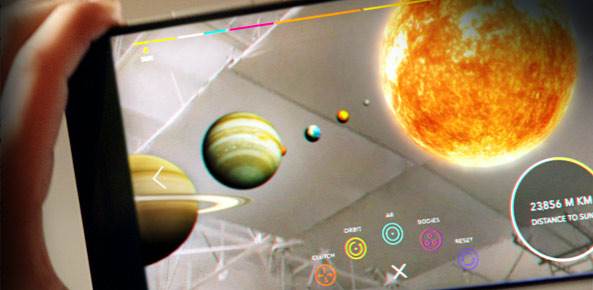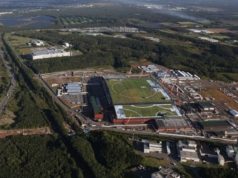Tech giant Google’s Maps feature lets users find and view the exteriors of virtually any buildings. Are you ready to look inside? Google’s Tango, previously known as Project Tango, aims to map the indoor world just as Google Maps has charted the outdoor world.
Tango is meant to help users find everything inside a building, including hallways and offices. What might interest Google and its advertisers even more could be Tango’s ability to find things like products in stores.
This week device maker Lenovo introduced the first consumer smartphone that uses Tango technology. The Phab 2 Pro, which will have a 6.4-inch screen, is set to be released by September at a cost of $ 500. Editions with both smaller and bigger screens are also on the way.
A Tango phone lets users peek inside buildings and map out rooms using the phone’s sensors and a quartet of cameras that capture the parameters and measurements of those rooms — along with everything inside them.
A Peek Inside
If Tango lives up to its potential, it could open up numerous new avenues for retailers, educators and others. It could let someone in the market for a new dining room table find and download digital models of various tables to evaluate how each of them would look in the user’s home. It could let students studying prehistoric eras to find dinosaurs in museums and place them into their classrooms.
Tango boasts the technology to make interior maps of homes and offices on the fly. That already gives it an advantage over Google Maps and Street View in that Google won’t need to build a mapping database ahead of time. Google Maps currently boasts more than 1 billion users worldwide. Google also owns a satellite company called Skybox that can take detailed pictures of Earth from space.
Jennifer Bélissent, principal analyst with Forrester Research Inc., told us while the jury is still out on Tango, she sees a lot of potential in the idea of indoor mapping in general.
“Indoor mapping will greatly benefit the directionally challenged, particularly in complex environments like hospitals, schools and universities, shopping malls and other commercial sites — dramatically improving the customer experience,” said Bélissent.
Application in Heavy Industry
Rowan Curran, Bélissent’s fellow analyst at Forrester, added that high-quality indoor maps on mobile devices provide opportunities for the construction, manufacturing, and other heavy industries. In settings such as those, knowing where people and assets in indoor and partially constructed spaces can improve logistics, prevent accidents and reduce waste, Curran said.
Google aim is for building owners to use Tango’s technology to map out the interiors of their buildings and then share the data with Google so that owners of Tango-enabled phones can better navigate around those buildings. One such “venue partner” of Google’s is the Lowe’s chain of home improvement stores. Google has also done some testing of Tango with the San Jose International Airport.






